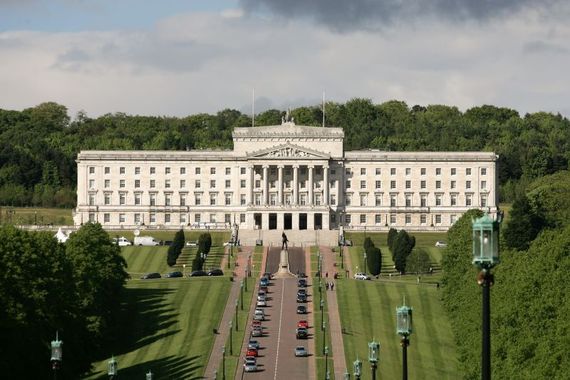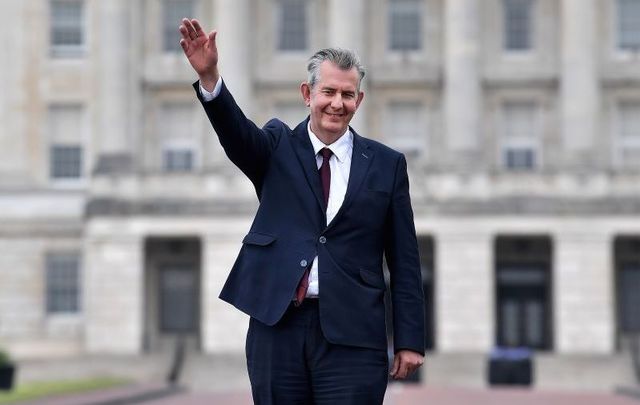There have also been claims of a purge of people who supported Westminster MP Sir Jeffrey Donaldson, who rivaled Edwin Poots for the DUP leadership.
The deep split in the DUP is ill-timed amid fears of outbreaks of violence over the post-Brexit Northern Ireland Protocol in the Loyalist marching season next month. The Protocol dictates cross-border trade arrangements but has angered loyalists and the DUP because they claim it separates the North from the rest of the U.K.
The outcry against Poots was highlighted when two DUP councilors, a former Westminster election candidate, and members of the party’s South Down association resigned last weekend.
They were joined on Monday night by Rebecca McNally, secretary of the Upper Bann branch in Co. Down. McNally six years ago in a Facebook comment she later removed mocked Catholic voters as “taigs” and described a Sinn Féin election candidate as a “tramp.”
More have threatened to leave the DUP amid claims that women and moderates are being left “voiceless” under Poots’ leadership.
Donaldson said it is highly regrettable that “senior and valued members now feel the DUP is no longer a warm house for them.”

Stormont, Northern Ireland.
Glyn Hanna and Kathryn Owen, members of Newry, Mourne, and Down Council, quit and are now expected to continue serving as independent councilors.
Constituency secretary Diane Forsythe, who was the party’s South Down candidate in the 2017 Westminster election, has also quit as well as others in the party’s South Down association.
Hanna was removed as South Down chairman at its annual meeting on Saturday night by eight votes to seven.
He had been a long-standing member of the DUP ruling executive but had openly criticized the party during the vote to ratify Poots as leader. Hanna also criticized the handling of former DUP leader Arlene Foster’s ousting from office.
He said the new DUP leadership’s actions would be “catastrophic for unionism” and urged anyone with “decency and integrity” in the party to consider their position.
Hanna told the BBC that there was a “culture of fear” in the party.
The open dissension within the party will pose fresh problems for Poots following a confirmation by police that they are investigating claims of outlawed UDA terrorist intimidation into the lead-up to his selection. There has been no suggestion he was aware of the intimidation, and he has said if it happened it should be reported to the police.
Foster has already said she is resigning from the party after she quits as First Minister of Northern Ireland at the end of June.
Poots on Tuesday said he would be nominating former Communities Minister Paul Givan as Northern Ireland's first minister in succession to Foster. Under the North’s power-sharing system, Givan will need to secure the agreement of Sinn Féin to take the office. Poots has said he is not taking up the first minister role as he wants to concentrate on leadership of the DUP.
Meanwhile, Poots had a meeting with Taoiseach Micheál Martin in Dublin last week, despite saying in advance that relations between Northern Ireland and the Republic had “never been as bad.”
But following the meeting with the Taoiseach, Poots struck a more conciliatory tone and said that he would lead a team to the next north-south ministerial meeting on June 18.
*This column first appeared in the June 9 edition of the Irish Voice newspaper, sister publication to IrishCentral.




Comments